Are you ready to take charge of your fitness journey? Crafting a personal fitness training agreement can set the foundation for a successful partnership between you and your trainer, ensuring clear expectations and goals. It's essential to understand the details, from session frequency to specific training methods, which can help maximize your results. Dive into this article to discover how to create the perfect agreement tailored just for you!

Client and Trainer Information
Personal fitness training agreements outline the roles and responsibilities of both the client and the trainer in structured fitness programs. The client section typically includes essential personal information, such as full name, contact number, and emergency contact details, ensuring the trainer can reach out in case of urgent situations. The trainer's information generally encompasses their full name, certifications (e.g., NASM, ACE, or CSCS), and contact information, which establishes the trainer's credibility and communication channels. This agreement sets clear expectations, including session frequency, duration, training location (e.g., gym name or home address), and payment details, which can involve hourly rates or package deals for multiple sessions. The document's structure is crucial for accountability, safety, and mutual understanding of fitness goals, ultimately leading to a successful training experience.
Scope of Services
Personal fitness training agreements often detail the specific scope of services to ensure clarity between trainers and clients. Services may include personalized workout plans, nutritional guidance, fitness assessments, and one-on-one training sessions lasting 60 minutes, occurring three times per week at a designated location such as a gym or outdoor space. Additional group training sessions (up to five participants) could be offered for enhanced motivation. Progress tracking through fitness metrics like body composition analysis, strength benchmarks, and endurance assessments may also be included every four weeks. The agreement might specify additional services such as injury rehabilitation guidance, workout adaptability for various fitness levels, and ongoing communication through text or email support for questions outside of training sessions.
Payment Terms and Schedule
In a personal fitness training agreement, defining payment terms and schedule is essential for ensuring clarity between the trainer and the client. The agreed amount, typically ranging from $50 to $100 per session depending on the trainer's experience and location, should be outlined. Specify the frequency of payments, such as weekly, bi-weekly, or monthly, to align with the client's financial planning. Include details regarding accepted payment methods, such as credit card, bank transfer, or cash, to enhance convenience. Additionally, describe any penalties for late payments, which could include a fee of $10 for each week past due. Setting a clear schedule, including the start date of services and any planned reviews, helps maintain accountability and track progress towards fitness goals. Finally, outline policies regarding cancellations and refunds to safeguard both parties' interests.
Cancellation and Rescheduling Policy
Personal fitness training agreements often include cancellation and rescheduling policies to ensure that both the trainer and the client maintain clear expectations. A well-structured policy typically states that clients must provide at least 24 hours' notice for any cancellations or rescheduling. Failure to notify the trainer may result in a cancellation fee, which could be a percentage of the session's cost or a full charge for the session. Additionally, the policy may outline the process for rescheduling sessions, emphasizing the importance of flexibility and communication. These guidelines help maintain the integrity of the trainer's schedule while allowing clients to manage their commitments effectively. A detailed cancellation and rescheduling policy demonstrates professionalism and care for both the trainer's business and client's training journey, fostering a positive and respectful relationship.
Liability Waiver and Insurance
A personal fitness training agreement emphasizes the importance of understanding liability waivers and insurance coverage. The waiver serves as a legal document protecting trainers and fitness facilities from claims arising due to injuries sustained during training sessions. Specific terms often highlight risks associated with physical activity, encouraging clients to acknowledge these potential hazards. It is common for trainers to recommend clients maintain personal health insurance (such as general liability insurance) to cover unforeseen accidents, ensuring both parties are secured in case of injuries. Clear communication about these aspects creates a professional relationship based on trust and safety, essential for successful fitness training experiences.

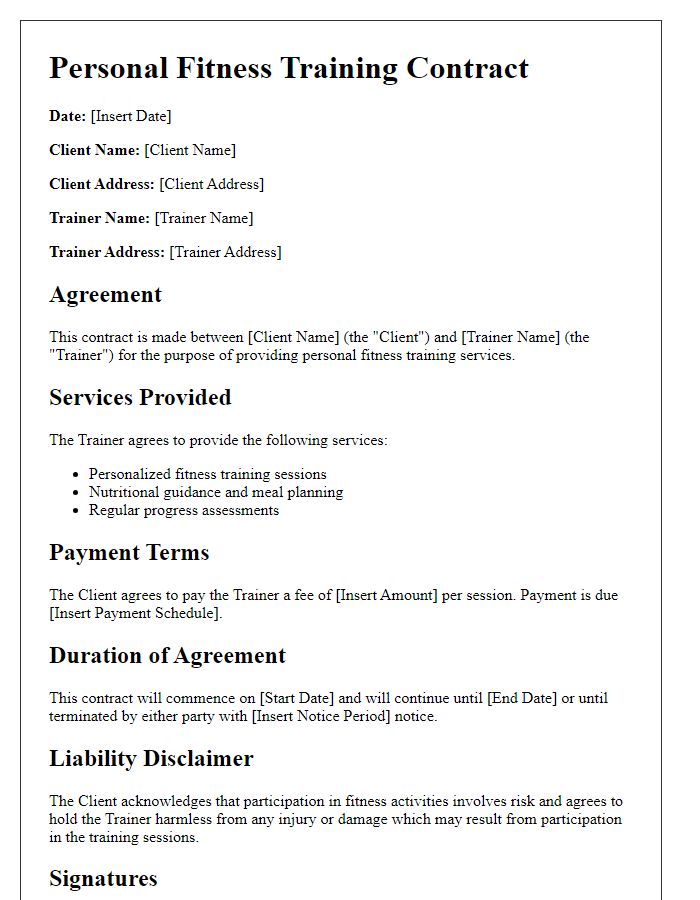
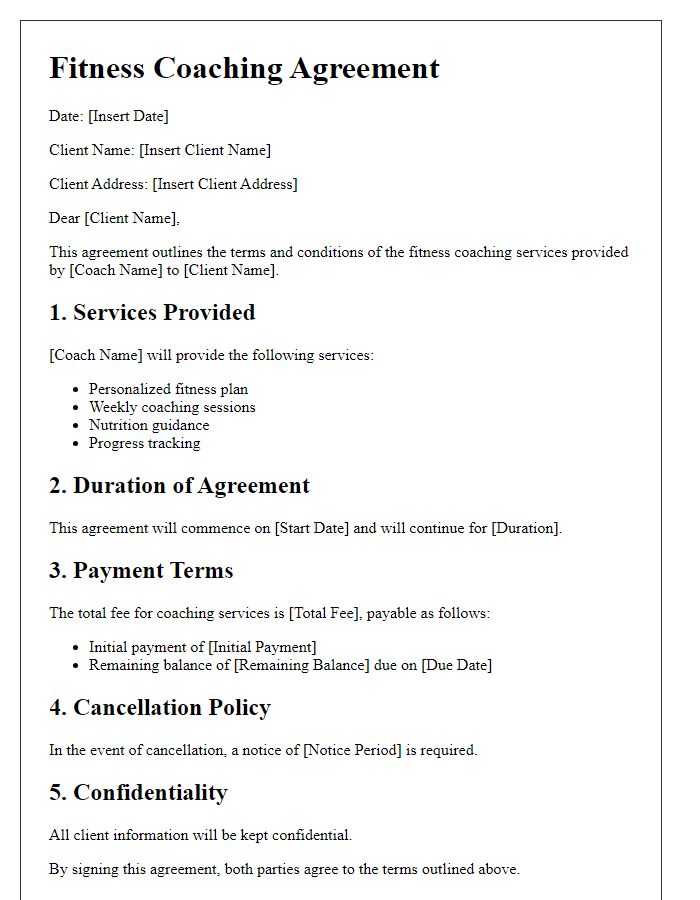
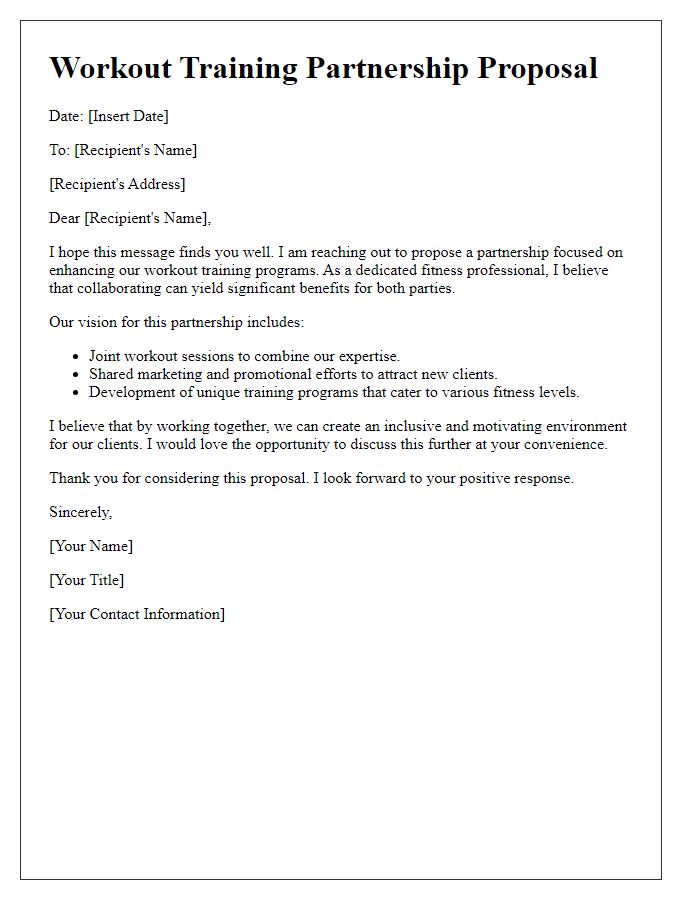
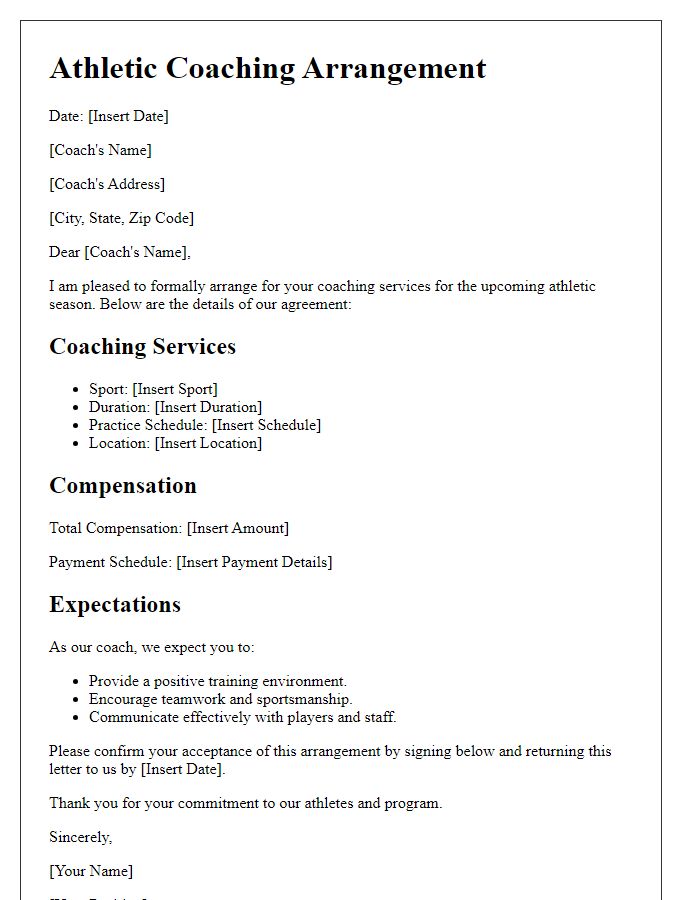
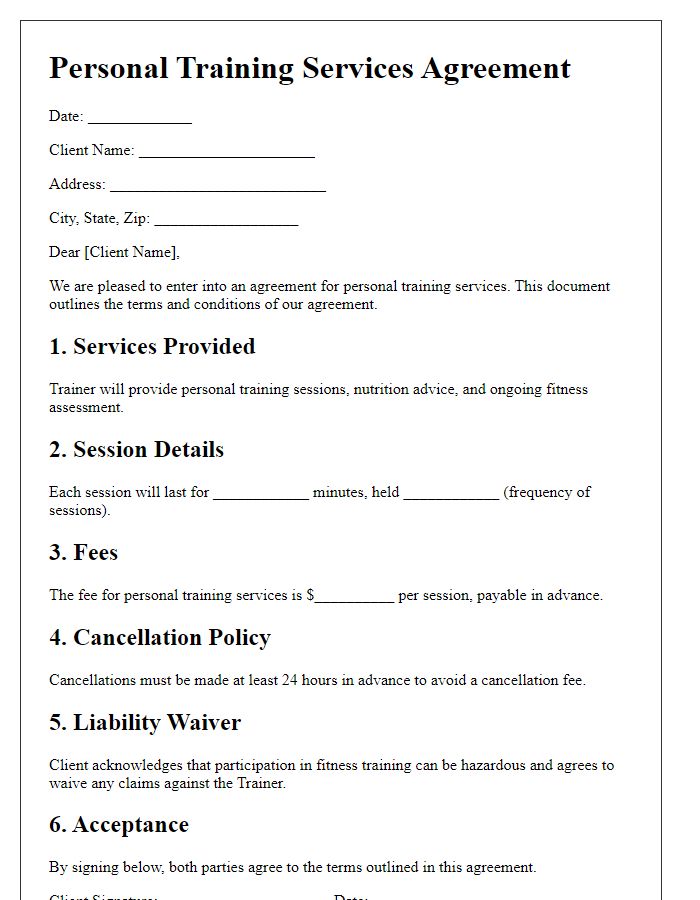
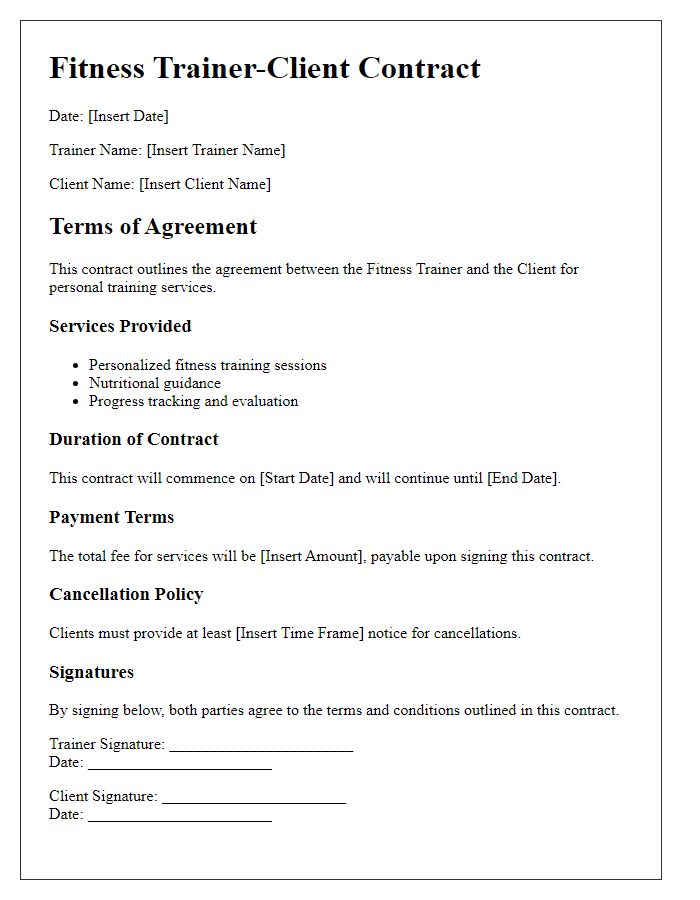
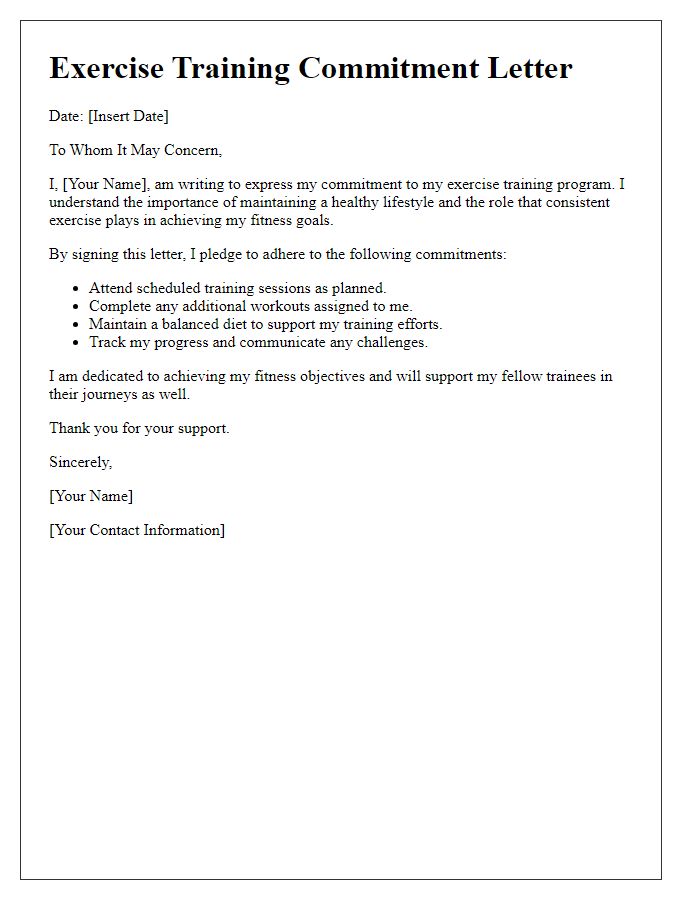
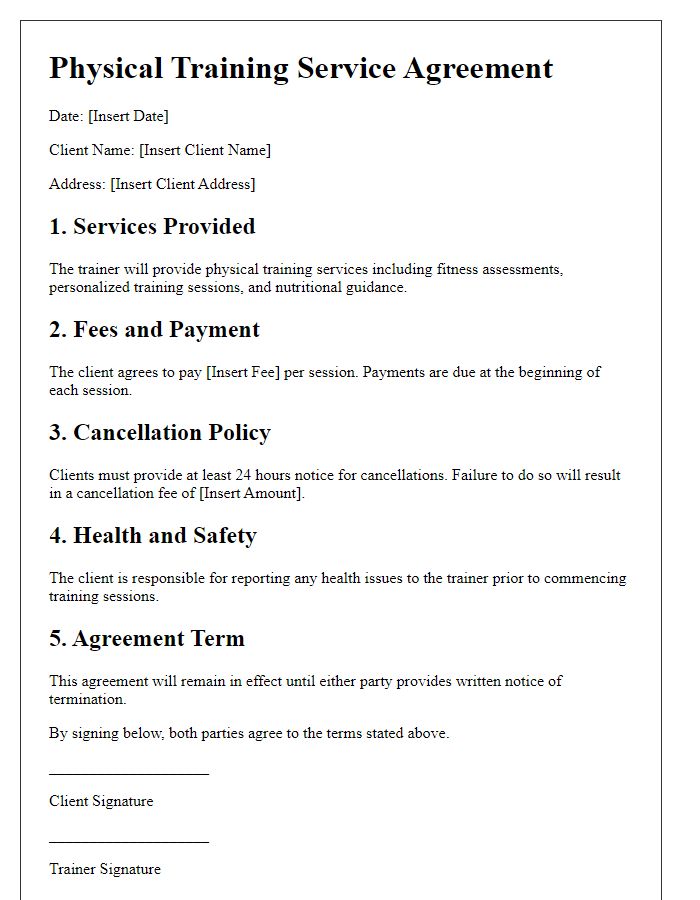
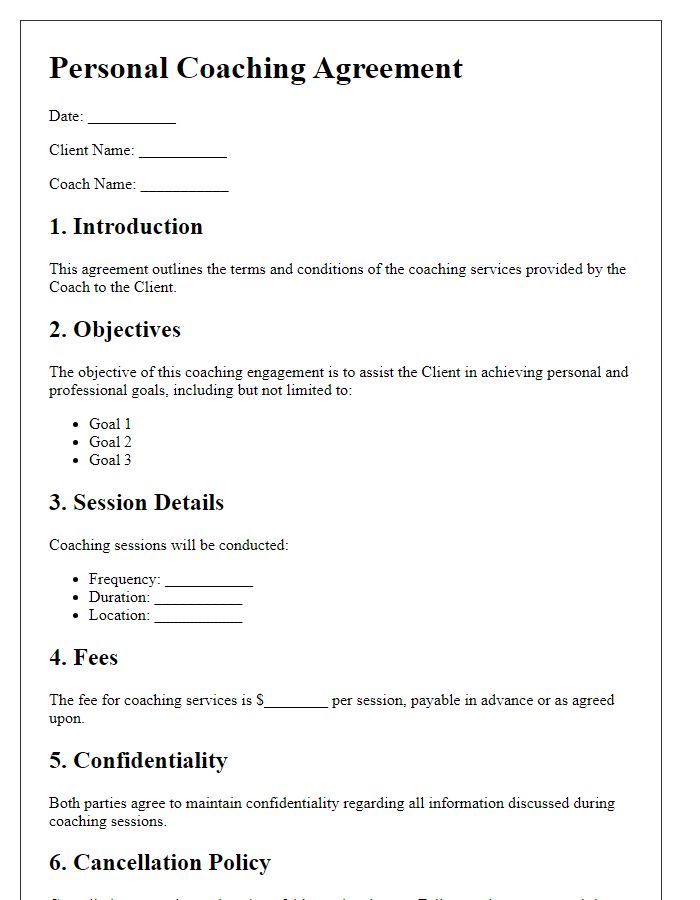
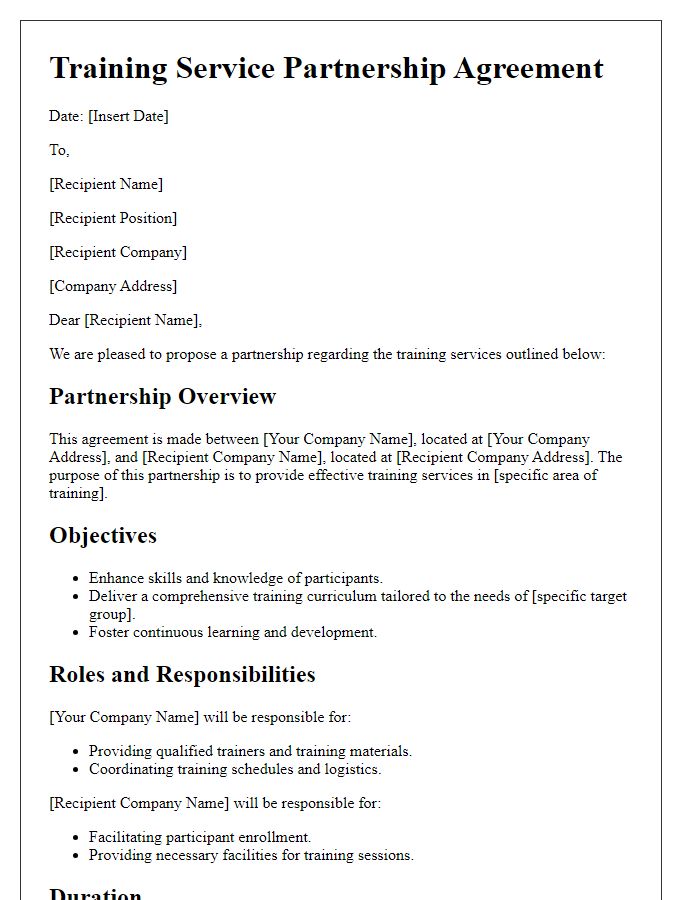


Comments